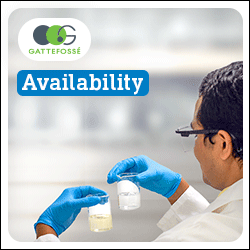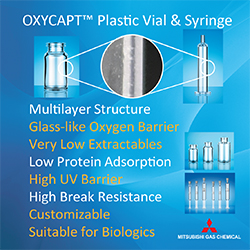bluebird bio Announces Global Regulatory Strategy for Gene Therapy

bluebird bio, Inc., a clinical-stage company committed to developing potentially transformative gene therapies for severe genetic and rare diseases and T cell-based immunotherapies, recently announced it has met with regulatory authorities in Europe and the United States to discuss potential approval pathways for its LentiGlobin BB305 product candidate for the treatment of beta-thalassemia major. These discussions have resulted in general agreement from both agencies regarding bluebird bio’s development plans, which could potentially result in accelerated approvals.
“We are very pleased with the outcome of these recent regulatory interactions,” commented David Davidson, MD, Chief Medical Officer. “We look forward to advancing our beta-thalassemia major program based on data both from our ongoing studies as well as two planned open-label studies with a sample size of 15 patients each. The EMA Adaptive Pathways pilot program will allow us to pursue conditional approval for the treatment of beta-thalassemia major on the basis of clinical data from our ongoing HGB-204 and HGB-205 studies. This feedback brings us closer to achieving our vision of delivering one-time, potentially transformative gene therapy to patients.”
EMA Registration Strategy: Participate in Adaptive Pathways Pilot Program
bluebird bio is one of the first companies to participate in the European Medicines Agency’s (EMA) Adaptive Pathways (formerly referred to as Adaptive Licensing) pilot program, which is part of the EMA’s efforts to improve timely access for patients to new medicines. Based on several discussions involving the EMA, European Health Technology Assessment (HTA) agencies, and patient advocacy organizations as part of this program, bluebird bio believes it is possible to seek conditional approval for the treatment of adults and adolescents with beta-thalassemia major on the basis of the totality of clinical data, in particular reduction in transfusion need, from the ongoing Northstar Study and supportive HGB-205 study. Conversion to full approval will be subject to the successful completion of the HGB-207 and HGB-208 clinical trials discussed further, supportive long-term follow-up data and “real-life” post-approval monitoring data.
FDA Registration Strategy: Pursue Accelerated Approval Based on HGB-207 (n=15) and HGB-208 (n=15)
In addition, bluebird bio has reached general agreement with the US Food and Drug Administration (USFDA) on the design of its planned clinical trials HGB-207 and HGB-208. Based on its discussions with the FDA, bluebird bio believes that data from these trials, together with data from the ongoing beta-thalassemia major clinical studies (Northstar and HGB-205), could form the basis for a Biologics License Application (BLA) submission for LentiGlobin BB305. HGB-207 and HGB-208 share similar trial designs and are differentiated primarily by patient age. HGB-207 will enroll adult and adolescent patients; HGB-208 will enroll pediatric patients. bluebird bio has also reached general agreement with the FDA on:
-
Sample size: 15 patients per trial
-
Duration: 24 months of follow-up per patient
-
Primary endpoint: 12 months of transfusion independence
In the United States, if the LentiGlobin BB305 product candidate demonstrates acceptable efficacy and safety in these patient populations, these planned clinical trials could support an accelerated approval, with post-approval confirmatory evidence to be provided with longer-term follow-up of these trials. As a result of this regulatory feedback and as required of all gene therapy clinical trials, bluebird bio has filed both clinical study protocols with the National Institutes of Health (NIH) Recombinant DNA Advisory Committee (RAC). The RAC has notified bluebird bio that HGB-207 does not require an in-depth review or public RAC discussion. The RAC has also notified bluebird bio that the HGB-208 study protocol is scheduled for public review on June 9, 2015.
“We are grateful for the collaborative regulatory feedback from the FDA and EMA on the design of our pivotal studies, as well as feedback from the European HTA agencies and patient advocacy organizations that are participating in our Adaptive Pathways pilot project,” said Anne-Virginie Eggimann, Vice President of Regulatory Science. “We are looking forward to continuing our engagement with all of these stakeholders in the coming months to support the potential acceleration of the LentiGlobin BB305 program.”
Background on the EMA’s Adaptive Pathways Program
In establishing the Adaptive Pathways program, the EMA stated the following:
“The concept of Adaptive Pathways foresees either an initial approval in a well-defined patient subgroup with a high medical need and subsequent widening of the indication to a larger patient population, or an early regulatory approval (eg, conditional approval), which is prospectively planned, and where uncertainty is reduced through the collection of post-approval data on the medicine’s use in patients. This approach is particularly relevant for medicines with the potential to treat serious conditions with an unmet medical need and may reduce the time to a medicine’s approval or to its reimbursement for targeted patient groups. It involves balancing the importance of timely patient access with the need for adequate, evolving information on a medicine’s benefits and risks. The Adaptive Pathways approach builds on regulatory processes already in place within the existing European Union legal framework.”
The pilot was initiated in March 2014 and was called “Adaptive Licensing” at the time. EMA changed the name to Adaptive Pathways “to better reflect the idea of a life-span approach to bring new medicines to patients with clinical drug development, licensing, reimbursement, and utilization in clinical practice, and monitoring viewed as a continuum.”
Background on the FDA Process & NIH’s RAC
FDA approval must be obtained before clinical testing of biological products. Each clinical study protocol for a gene therapy product is reviewed by the FDA and the NIH, through its Recombinant DNA Advisory Committee (RAC). Within the FDA, the Center for Biologics Evaluation and Research (CBER) regulates gene therapy products. CBER works with the NIH and its RAC, which makes recommendations to the NIH on gene therapy issues and engages in a public discussion of scientific, safety, ethical, and societal issues related to proposed and ongoing gene therapy protocols.
The NIH is responsible for convening the RAC to discuss protocols that raise novel or particularly important scientific, safety, or ethical considerations at one of its quarterly public meetings. The Office of Biotechnology Activities (OBA) notifies the FDA of the RAC’s decision regarding the necessity for full public review of a gene therapy protocol. RAC proceedings and reports are posted to the OBA website and may be accessed by the public.
About bluebird bio, Inc.
With its lentiviral-based gene therapy and gene-editing capabilities, bluebird bio has built an integrated product platform with broad potential application to severe genetic diseases and T cell-based immunotherapy. bluebird bio’s clinical programs include Lenti-D, currently in a Phase II/III study, called the Starbeam Study, for the treatment of childhood cerebral adrenoleukodystrophy, and LentiGlobin, currently in three clinical studies: a global Phase I/II study, called the Northstar Study, for the treatment of beta-thalassemia major; a single-center Phase I/II study in France (HGB-205) for the treatment of beta-thalassemia major or severe sickle cell disease; and a separate US Phase I study for the treatment of sickle cell disease (HGB-206). bluebird bio also has a preclinical CAR T immuno-oncology program in collaboration with Celgene Corporation, as well as discovery research programs utilizing megaTALs/homing endonuclease gene-editing technologies. bluebird bio has operations in Cambridge, MA, Seattle, WA, and Paris, France. For more information, visit www.bluebirdbio.com.
Total Page Views: 980













